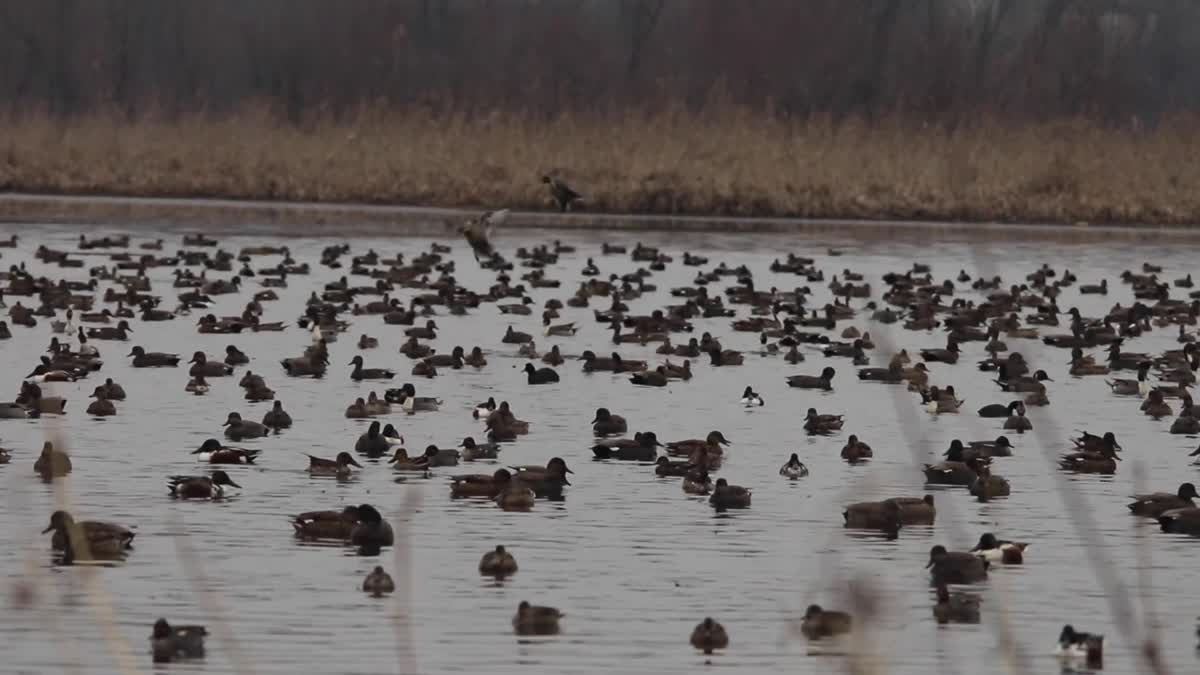Srinagar (Jammu and Kashmir): The picturesque wetlands of Kashmir, a favored destination for migratory birds from various Eurasian countries, have experienced a noticeable shift in the migration patterns of avian guests this winter owing to the recent prolonged winter dry spell, ETV Bharat has learnt. Officials said that the climate change-induced alterations have been observed during this winter season, affecting both the arrival and departure schedules of migratory birds.
The migratory birds, traversing from European and Asian countries through the Central Asian Flyway (CAF), have traditionally found solace in the serene wetlands of Kashmir. A senior wetland official revealed to ETV Bharat that this winter, the valley witnessed an unusually prolonged dry spell, accompanied by abnormally high day temperatures and delayed snowfall.
"The unfavorable climatic conditions have significantly impacted the migration patterns of these avian guests. We noticed an early arrival and early departure of the migratory birds this season," the official stated. Traditionally, migratory birds, en route to their final destinations, take halts at various wetlands along the CAF.
However, due to the warmer-than-usual climate this winter, the duration of their stay at these halt stations has been noticeably reduced, the official said. The official remarked, "There were lakhs of migratory birds at these wetlands at the beginning of this winter. However, due to the unfavorable climate conditions, a significant number moved to different states in North India, such as Punjab, Himachal, and Uttarakhand."
Expressing optimism, the official stated, "We believe that these birds will return in March before starting their reverse migration. The exact number of birds will be ascertained through the Asian bird census, which is scheduled to be conducted after February 15." The impact of climate change on wildlife, particularly migratory patterns, is becoming increasingly evident, and these observations in Kashmir add to the growing body of evidence.
Conservationists and wildlife experts emphasize the need for continued monitoring and collaborative efforts to mitigate the adverse effects of climate change on these migratory birds and their habitats.


